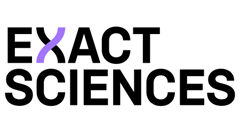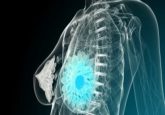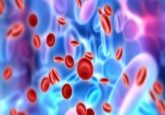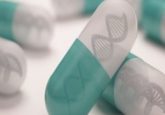Transforming the future of cancer care
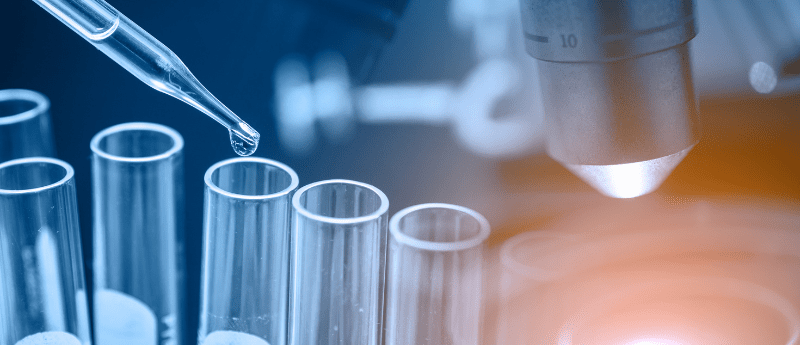
In Europe, the second largest cause of mortality is cancer. With 1.9 million deaths and 3.7 million total cases diagnosed, cancer in Europe takes up a quarter of the world’s total cases [1]. It is well known that cancer is one of the population’s biggest enemies, and at Exact Sciences we are all working to stop its deadly impact. From diagnosis to treatment, cancer is a challenge at every stage. So why not start at the beginning?
Exact Sciences is a molecular diagnostics company working to change the way we think about diagnosing and treating cancer. As a leader in cancer testing, we recognise the critical need to provide earlier answers and treatment guidance. Our mission is to advance cancer care and, one day, turn cancer into a manageable condition.
Leading the way in cancer diagnostics and personalised medicine
Exact Sciences is working to pioneer the cancer diagnostics landscape and help to enable personalised medicine for cancer patients. For decades, cancer treatment was often a one-size-fits-all approach that involved invasive surgery and the use of toxic chemotherapy. We now know that not all patients and tumours are the same [2]. Every cancer is unique and affects each person differently based on the individual biology of that person’s disease [2]. Therefore, tailoring treatments to the individual has tremendous promise to improve outcomes, [3] while reducing healthcare costs [4] by eliminating unnecessary treatments.
Transforming cancer outcomes requires a comprehensive suite of tests and treatments for all patients before, during, and after a diagnosis. Our company’s Oncotype DX Breast Recurrence Score® test is designed to help women diagnosed with early-stage, hormone receptor-positive, HER2-negative breast cancer understand if they are likely to benefit from chemotherapy [5]. The Oncotype DX® test aims to give patients and their physicians valuable insights to make informed treatment decisions with a greater degree of confidence and has helped over one million patients worldwide so far [6].
Being a global leader in cancer diagnostics, Exact Sciences recognises that it has a reputation to uphold and continue to build, in order to facilitate change that matters. That’s why we recently announced a collaboration agreement with the West German Study Group (WSG), an international research institution. Together, Exact Sciences and WSG plan to conduct a prospective, multicentre validation study in hormone receptor (HR)-positive, HER2-negative early breast cancer patients. The study is intended to demonstrate the ability of Exact Sciences’ tumour-informed circulating tumour DNA (ctDNA) liquid biopsy test to detect minimal residual disease (MRD) and to collect important long-term follow-up and outcome data.
The MRD test that Exact Sciences is developing is intended for patients diagnosed with solid tumour malignancies to detect ctDNA before, during, and after cancer treatment. Such information may be used for guidance of adjuvant therapy decisions or for monitoring of cancer recurrence, in conjunction with other clinicopathological findings.
Exact Sciences recognises that cancer is detected too late far too often. Current standard of care screening can find some types of cancer – breast, colon, cervical and lung – but those make up less than a third of all cancer cases [7]. We aim to help close the massive screening gap that exists today in which ~70% of incident cancers have no current screening methods [7,8,9]. That’s why we are developing a new kind of blood test, multi-cancer early detection (MCED), to detect cancer early, when it is at its most treatable stage. Our goal is to make routine screening for multiple types of cancer a reality, and this could be done with a single blood draw.
Breaking the status quo
The medical developments and breakthroughs that have arisen in recent years could never have even been imagined 10 years ago. However, from diagnostics to the cutting-edge medicines and approaches to treat each person’s tumour type individually, a vast health inequity sadly exists across the globe [10]. The uptake of innovative medicines and diagnostics differs across countries.
Varying priorities and resources of governments and regulatory bodies mean that the adoption of innovation can be slow or overlooked, leading to unwarranted variations in cancer care. Access depends on broad healthcare coverage and, even for those with coverage, a gap still exists with not enough people getting screened for cancer. We want to change that.
Working together to achieve an ambitious shared vision
At this year’s European Society for Medical Oncology (ESMO) Congress (9–12 September 2022, Paris, France), many leaders in oncology came together to present, witness, and share some of the best and most recent advances in the field, all with a mutual ambition to help save lives. Cancer is around us all day every day. Working in collaboration to achieve one outcome is the key to success: the key to getting ahead of cancer. That’s why Exact Sciences welcomes collaborations and the contributions of others. Cross-functional teamwork, coupled with a variety of experience across different sectors related to healthcare, is critical to ensuring the best ideas from all fields are combined to yield new, extraordinary results for patients.
For more information about innovations and options in cancer care, please visit www.exactsciences.com.
Author profile:
 Steven Bellamy, VP Medical, International
Steven Bellamy, VP Medical, International
Steven joined Exact Sciences in April 2021 as Vice President Medical, International. Before joining Exact Sciences, Steven has held many positions across the Health & Life Sciences Industry including Vice President Medical for Europe And Canada at AstraZeneca, UK & I Medical Director for Amgen and Executive Medical Director for Spain & Portugal at Bristol Myers Squibb. Steven graduated from Edinburgh Medical School and spent a number of years working for the NHS before joining industry. Steven is married and resides in Zug with twin boys aged 11 years.
References:
- WHO (2022). Available at: who.int/europe/health-topics/cancer#tab=tab_2 [Accessed August 2022].
- Cancer Research UK. (2021). What is personalised medicine? [Online]. Cancer Research UK. Last Updated: June 2021. Available at: cancerresearchuk.org/about-cancer/cancer-in-general/treatment/personalised-medicine [Accessed August 2022].
- NHS England. (2016). Improving outcomes through personalised medicine. [Online]. NHS England. Last Updated: 2017. Available at: england.nhs.uk/wp-content/uploads/2016/09/improving-outcomes-personalised-medicine.pdf [Accessed August 2022].
- Kasztura M, Richard A, Bempong N-E, Loncar D, Flahault A Cost-effectiveness of precision medicine: a scoping review Int. J. Public Health 64(9): 1261–1271 (2015). Last Updated: Nov 2015. Available at: ncbi.nlm.nih.gov/pmc/articles/PMC6867980/ [Accessed August 2022].
- Exact Sciences. What is the Oncotype DX® test, and what makes it unique?. [Online]. Oncotype DX by Exact Sciences. Available at: oncotypeiq.com/en/breast-cancer/healthcare-professionals/oncotype-dx-breast-recurrence-s [Accessed August 2022].
- Jakubowski DM, MS, Bailey H et al.Molecular characterization of breast cancer needle core biopsy specimens by the 21‐gene Breast Recurrence Score test J. Surg. Oncol. 122(4): 611–618 (2020) Available at: ncbi.nlm.nih.gov/pmc/articles/PMC7496790/ [Accessed August 2022].
- Siegel RL, Miller KD, Fuchs HE, Jemal A. Cancer statistics, 2022. CA Cancer J. Clin.72(1):7–33 (2022).
- Incidence and mortality data from SEER (www.seer.cancer.gov; SEER Stat Database: Incidence – SEER 18 Regs Research Data, Nov 2018 Sub) Available at: https://seer.cancer.gov/data-software/documentation/seerstat/nov2018/ [Accessed September 2022].
- Smith RA, Andrews KS, Brooks D et al. Cancer screening in the United States, 2019: A review of current American Cancer Society guidelines and current issues in cancer screening. CA Cancer J. Clin. 69(3):184–210 (2019).
- European Cancer Organisation. (November 2020). It Can Be Done – Beating Inequalities in Cancer Care. Action Report. [Online] . Last Updated: 2020. Available at: europeancancer.org/resources/164:beating-inequalities-in-cancer-care.html [Accessed August 2022].
In association with:
The opinions expressed in this interview are those of the author and do not necessarily reflect the views of Oncology Central or Future Science Group.
